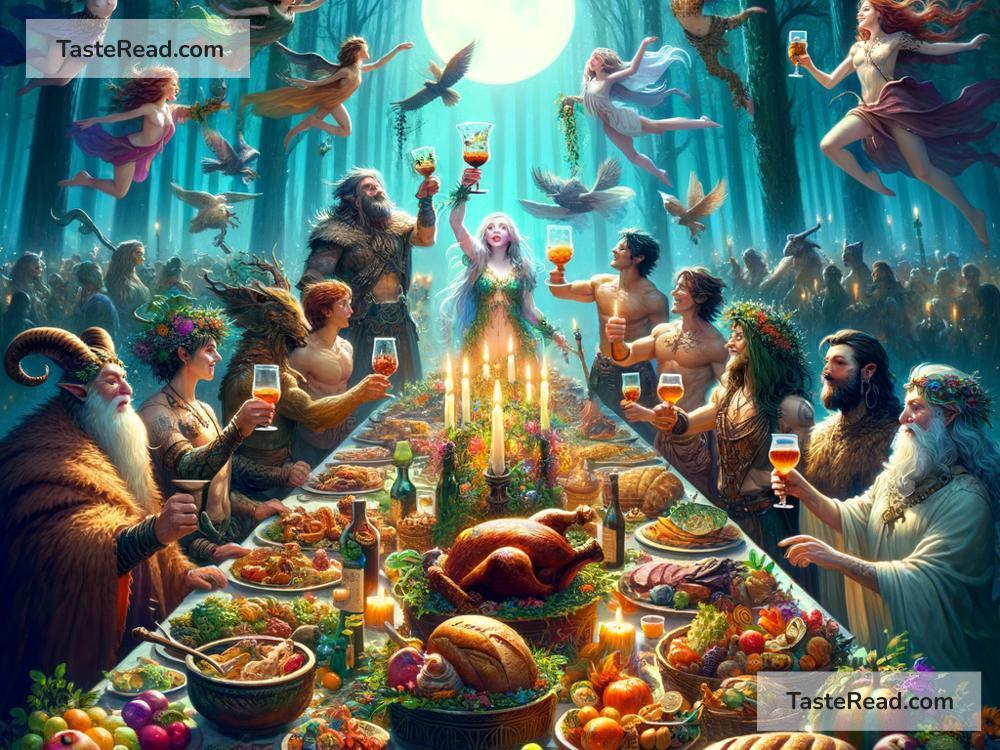The Mythical Tale of the Endless Feast
There are thousands of legends in the world—stories passed down from one generation to the next. Some teach important lessons, and others bring wonder and curiosity. One such myth is the tale of the Endless Feast, a story that speaks of magic, greed, and celebration. This tale has been told in different ways across cultures, but the heart of the story remains the same.
What Is the Endless Feast?
The Endless Feast is not just any meal. It is said to be a magical banquet that never runs out of food or drink. No matter how much people eat or how many guests arrive, the tables remain full. The feast is held in a grand hall or atop a beautiful mountain. Long tables are covered with golden plates, bowls of fruit, roasted meats, freshly baked bread, and countless desserts. Cups never empty, refilling themselves with the finest wines, juices, or water, depending on the drinker’s wish.
For those lucky enough to sit at this feast, it feels like paradise. They enjoy delicious food, hear music played by invisible musicians, and share laughter with others at the table. It is a symbol of abundance, happiness, and togetherness. But, as with many myths, there is more to the story.
Where It All Began
Nobody knows exactly where the story of the Endless Feast began. Some say it came from ancient Greece, where gods held eternal banquets on Mount Olympus. Others believe it’s rooted in old European stories of magical kings who hosted never-ending celebrations in enchanted castles. Certain versions of the tale exist in Asian cultures too, where monks or mystical beings invite travelers to join feasts that defy time and space.
While the origins are unclear, one version of the tale goes like this:
The Tale of King Alaric and the Endless Feast
Once upon a time, there was a wealthy king named Alaric. He ruled over a prosperous land where crops grew tall, rivers flowed clean, and people hardly ever went hungry. King Alaric loved throwing extravagant parties for his people. On special occasions, he filled the castle with food and music, inviting everyone to come and celebrate.
One day, while walking in the forest, King Alaric met a mysterious old man. The man had long gray hair and piercing blue eyes, and he carried a walking stick made of gold. He told the king, “You are kind to your people, and they love you. For your generosity, I will grant you a gift: an Endless Feast.”
Before the king could say anything, the old man waved his hand, and sparkling light filled the air. “For seven days, your tables will never empty. Everyone will eat, drink, and be merry. But heed my warning: Do not let greed take over, or the feast will turn to ash.” With that, the old man disappeared.
The Celebration Begins
Excited by the magical gift, King Alaric announced the feast, inviting everyone from his kingdom. The tables were filled, and for seven days, people gathered to eat, dance, and celebrate. The king was delighted; he felt proud to have brought so much joy to his kingdom.
People marveled at the magic. No matter how much they ate, the roasted meats stayed warm and fresh. The bread was always soft, and new desserts appeared each time one was finished. Musicians who had grown tired would find their instruments playing on their own, as if enchanted.
The Warning Forgotten
But as the week went on, not everyone remembered the old man’s warning. Some guests began filling their pockets and bags with food, thinking they could take pieces of the magical feast home. Others demanded special dishes that weren’t on the table and became angry when their demands weren’t met. A few of the nobles began arguing over who deserved the best seat at the table.
Even King Alaric himself forgot the warning. As his guests grew greedier, he started wondering: Could the Endless Feast last forever? Did the old man’s magic have a limit? If he hosted feasts like this all the time, he could become the most famous king in history.
On the morning of the eighth day, King Alaric and his people woke up to find the tables empty. The food had vanished, and the banquet hall was quiet. Even the warm glow of the room had disappeared. The Endless Feast was over. Worse still, people felt hungrier than ever, as if the greed that had infected their hearts made them less satisfied with ordinary meals. King Alaric sat alone, regretting that he had not followed the wise man’s advice.
The Lessons of the Tale
The story of the Endless Feast is often told to remind us of important lessons. It teaches that generosity is a virtue, but greed can ruin even the best intentions. The tale warns us not to take advantage of blessings or forget to be humble.
It also presents the idea that true happiness comes from sharing and being grateful. When the feast brought joy to the people without excess or selfishness, it felt magical. But when greed entered, the gift was lost.
A Legend That Lives On
Though the Endless Feast may be a mythical tale, it resonates with people of all ages. It reminds us to be kind, to appreciate what we have, and to celebrate life without forgetting its limits. Whether told around campfires or in books, this story continues to inspire people to think deeply about the balance between abundance and satisfaction.
Would you want to attend an Endless Feast? If you ever do, remember the old man’s warning: enjoy the magic, but leave greed behind.


